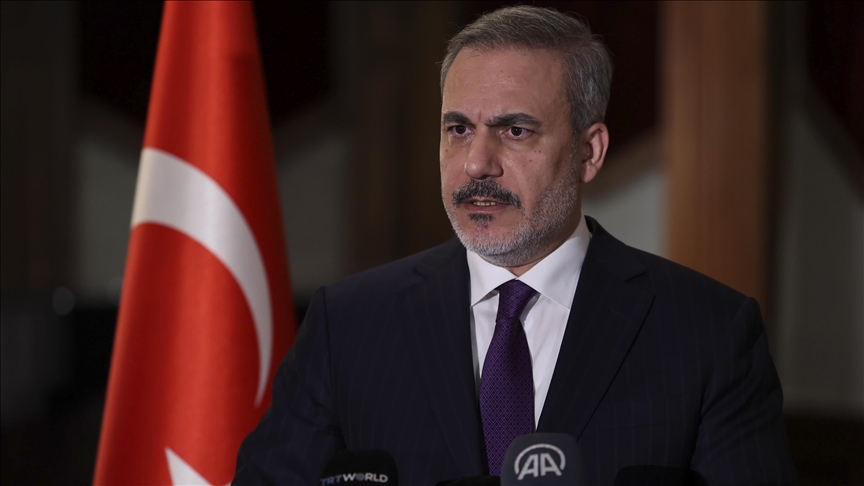ANKARA :Turkish Foreign Minister Hakan Fidan, within the framework of efforts to end the war in Gaza and achieve a lasting peace, held talks Friday in Oslo, upon the invitation of the Scandinavian and Benelux countries, along with the Organization of Islamic Cooperation (OIC) and the Arab League Contact Group.
According to diplomatic sources, the visit included Palestinian Foreign Minister Riyad al-Maliki, Qatari Prime Minister and Foreign Minister Sheikh Mohammed bin Abdulrahman Al Thani, Saudi Arabian Foreign Minister Faisal bin Farhan Al Saud, Jordanian Foreign Minister Ayman Safadi and OIC Secretary-General Hissein Brahim Taha and members of the Contact Group.
In addition to Fidan, the meeting was attended by Norwegian Prime Minister Jonas Gahr Store, the foreign ministers of Belgium, Denmark, the Netherlands, Sweden, Iceland, Luxembourg, and Norway, as well as Jukka Salovaara, Undersecretary of the Finnish Foreign Ministry.
The meeting called for an immediate and full cease-fire in Gaza, the protection of civilians and the unimpeded entry of urgent humanitarian aid into the besieged Gaza Strip.
The visit is also significant in increasing the number of EU countries supporting Palestine, especially those unable to call for a cease-fire in Gaza.
Denmark, Finland and Sweden, among the countries contacted, did not support Palestine in a vote at the UN General Assembly in October. But in a Dec. 12 vote, the Netherlands, which abstained, expressed sensitivity on Gaza.
The meeting of the Contact Group was useful in conveying the sensitivity of the Netherlands on the Gaza issue and in making the stance for countries that cast a neutral vote Tuesday.
While some of the countries have witnessed an increase in anti-Islamic acts, discussions were crucial in reiterating the message of combating extremist groups and inter-community peace.
Dialogue between the Contact Group and Scandinavian and Benelux countries indicates an increased awareness in Western Europe of oppression in Gaza and Palestine.
But the demand by the Contact Group for a complete cease-fire and the start of the peace process, emphasizing peace, justice and a lasting solution, has allowed expectations for a swift resolution to gain resonance worldwide.
The Contact Group no longer represents only the OIC and the Arab League but conveys the stance adopted by the majority of the world public.
The Contact Group, by drawing attention to the situation in Gaza in all its clarity, exerts pressure on countries unquestionably supporting Israel to change their stances. As a result of the efforts, countries that do not distance themselves from Israel’s oppression are becoming isolated.


